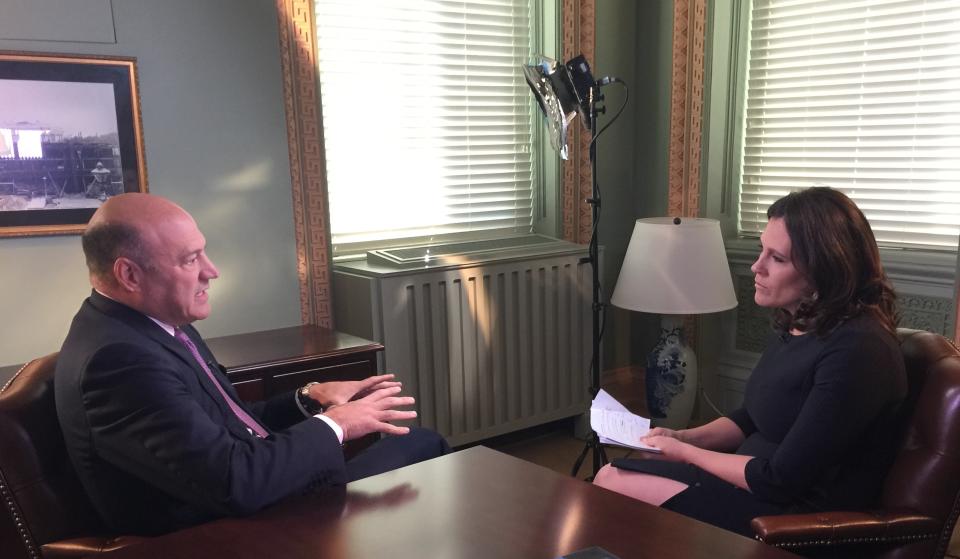Gary Cohn: 'We have to have a permanent change in the tax system'
The Trump administration’s tax framework has faced criticism about its impact to the deficit. After all, the non-partisan Tax Policy Center estimates the current plan would reduce revenue to the government by $2.4 trillion in the first decade and $3.2 trillion in the second decade.
This matters, because under Senate rules, tax legislation that passes with only a simple majority of votes (under what is often referred to as “budget reconciliation”) cannot increase the deficit in any year after the 10-year budget period or the legislation expires.
And Director of the National Economic Council (NEC) Gary Cohn told Yahoo Finance that he is looking for tax reform, and not just cuts, that is permanent.
“We have to have simplification as well as cuts,” he said. “If we’re going from a worldwide system to a territorial system, which is very important for us to compete, it has to be permanent,” Cohn said. “Businesses make long-term capital investments. They make long-term hiring investments. We have to have a permanent change in the tax system.”
The current tax framework also faces challenges from deficit-hawks in the Senate, particularly with a current debt-to-GDP ratio at a staggering 75%. This group, including Senator Rand Paul (R-Ky), has emphasized that tax cuts must be paid for by spending cuts.

The Trump administration has said that tax cuts will pay for itself with sustained growth, as they see GDP near 3%, up from the current estimate of 2% from the Congressional Budget Office (CBO).
But most economists say that’s unlikely, especially given we are already near full-employment with record-low interest rates.
“They would bloat the budget deficit at a time when we should be preparing for the next downturn, for rising entitlement costs and potentially for the need for increased national security spending,” former Treasury Secretary Larry Summers recently wrote. Meanwhile, increasing the supply of bonds to fund a deficit increase could depress asset prices, he added, offsetting tax program benefits.
When it comes to raising revenue to pay for the tax cuts, the Trump administration’s effort to pay for the tax reform has hit hurdles. The original cross-border adjustment tax from the original House proposal is not included in the White House framework. And the discussion of elimination of state and local tax deductions has faced pushback.
But Cohn had a more optimistic take.
“I don’t believe many of the things that you’re talking about are in trouble,” Cohn said. “We’re still having very robust discussions on state and local tax deduction. I think that’s an important concept that we have to continue to work on, and we’re working on with the tax writers. So I wouldn’t prejudge anything.”
Cohn added the priorities are a middle class tax cut and a lowered corporate tax rate and that there is room for compromise as the bill is drafted.
“We’ve released an outline of where we are,” Cohn said. “We’re trying to get from an outline to a bill. We’re trying to do that in the Senate and in the House. I think everything’s on the table. We are open to a lot of compromise. As long as we deliver a middle income tax cut and as long as we deliver a corporate rate that makes us competitive with the world, everything’s on the table.”
For more from Yahoo Finance’s interview with Gary Cohn, please see:
Gary Cohn: We won’t put conditions on repatriated cash, and we’re fine with stock buybacks
Gary Cohn: ‘The estate tax is really about small business’
Gary Cohn: Here’s how I expect corporate tax cuts to spur growth
—
Nicole Sinclair is a markets correspondent at Yahoo Finance.
Other articles:
Companies say they would use repatriated earnings to buy back stock
The lack of chaos has been brutal for Wall Street trading desks
One-third of retirees end up getting full-time jobs
Credit Suisse’s new strategist unveils bullish 2018 market call
